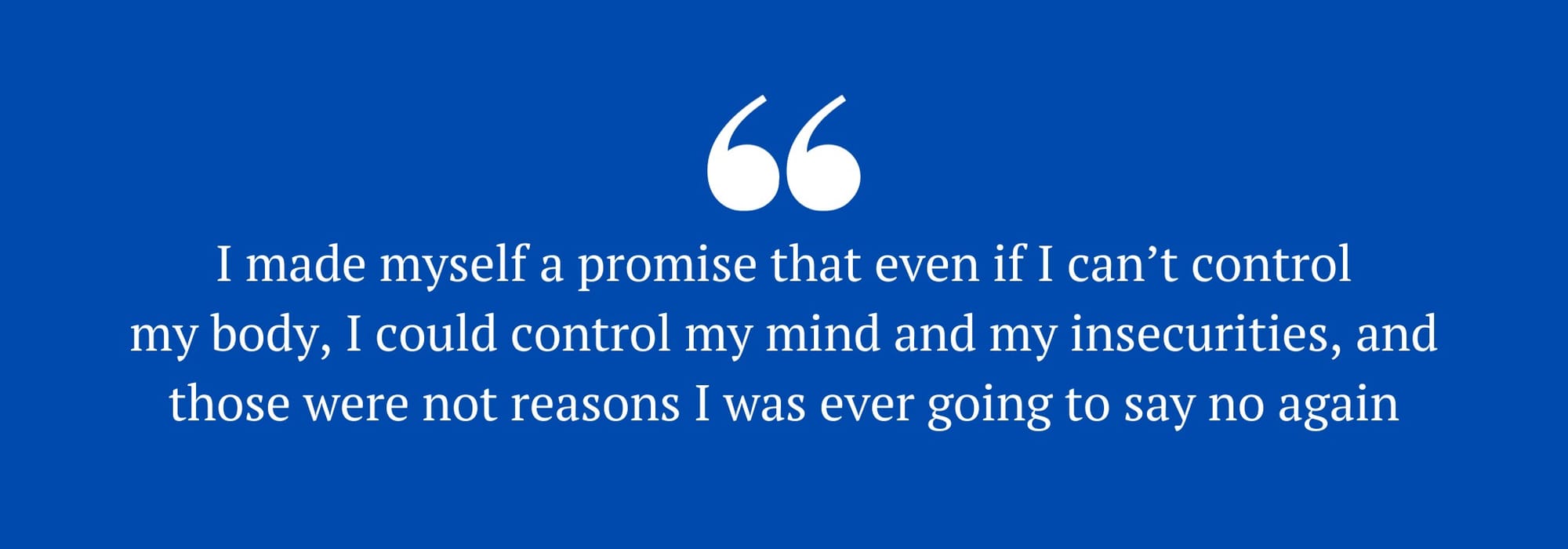
There are times when we’re afraid of missing out, and others when we honestly just don’t have the energy. But resenting your body might hold you back more. Instead, why not flip the narrative to treasure the times you do get to enjoy, and celebrate the wonderful things your body can do!
When you have a chronic illness, it can feel too easy to be angry at your body for not allowing you to do everything that you want to do. It can be easy to compare your body to your peers, and wonder why yours limits you, and stops you either physically or energy-wise. But over the years, I have realised that this line of thinking not only led to more anger at my body than it deserved, but resentment, too.
I know this mentality all too well, as someone who has been through 15 surgeries and spent most of their childhood in and out of hospital. As a teenager in particular, I would spend many days wishing I could be like my friends. Especially when I was in hospital, I would crave to be ‘normal’, and even back in school. Not being in school meant being different, and different meant standing out at a time in my life when I just wanted to fit in.
The turning point came when I was hospitalised again at 19 years old. If I thought I couldn’t do much before, I could do even less then because I was bed bound for an indefinite amount of time. It would end up only lasting for six weeks, which in the context of my hospital stays is short, but with this never-ending timeline hanging over my head, there was little else that I could do for those six weeks but think.
I began contemplating all the times I had said no because I was too worried about what I looked like, or simply didn’t join in with my friends because I couldn’t be bothered. Two memories stuck out. One was a dance class that I didn’t go to because I was worried about being the ‘fat girl’, so I stayed home while all my housemates went without me. The second was a card game, and this one was even sillier because the only reason I didn’t join my friends was because they lived in a different house, and it was too cold and wet outside.

Living in a chronically ill body meant I knew the feeling of FOMO (fear of missing out) all too well from the times when I was too ill to go to school, or was in hospital so couldn’t be with my friends, but these regrets that stuck in my mind were neither of those things. Those two memories were moments where I chose to miss out for whatever reason. I realised that the mentality that my body was holding me back was a true one, but there were many other instances where my mind held me back, too. And that’s when I made myself a promise that even if I can’t control my body, I could control my mind and my insecurities, and those were not reasons I was ever going to say no again in the future.
The reality is, whether you have a chronic illness or not, we all get the fear of missing out. You physically can’t be in all places at the same time, and the trick isn’t to avoid that feeling, but instead to treasure where you are currently, and the places you do get to be.
I spent so much of my life emphasising what I couldn’t do – from riding roller coasters to joining in with gymnastics at school – that I didn’t realise how much my body could do! My body has been fighting to keep me alive each and every day. It has had more challenges than most other bodies, but that’s not a reason to be hard on it – that’s a reason to love it more and be more grateful for all the smart things our bodies do to simply get us to survive.
In life coaching, there is a saying that goes, ‘You always have three choices: change it, accept it, or suffer.’ When it comes to our health, because it is largely out of our control, I have found that accepting the body I was given has given me the greatest peace. The more I longed and wished for a body that I didn’t have, the more I found I was forcing myself to try to keep up. In doing so, I was actually ignoring the times my body was telling me to stop or slow down.
Living a fulfilling life with a chronic illness has been a long road, but ultimately what it’s taught me is to listen to my body, because if you don’t listen when it whispers, it will scream. You shouldn’t have to wait until you are exhausted and broken down to take a break, and if that means that you do less than everyone else, that is OK. The only reason you feel shame about that is because society puts so much emphasis on productivity, and always being on the go and, in all honesty, I’m not sure that’s the epitome of health either!
Love Michelle x
Subscribe to Happiful to make sure you don't miss out on Michelle's fantastic regular column!

